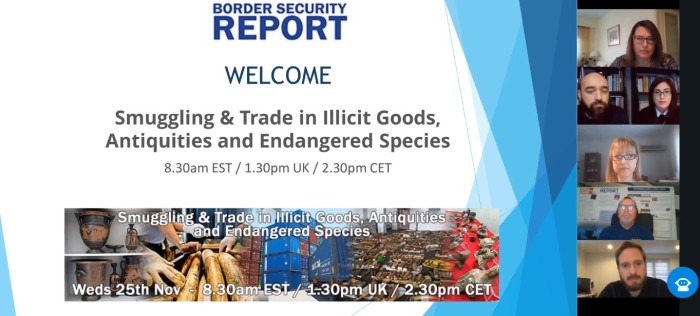If you missed the recent webinar, it is now available to watch at www.border-security-report.com/illicit-goods-webinar
The global trade in endangered species, over 1.5 million transactions per year, will drive some species to extinction if the trade is not stopped. The cultural damage inflicted by the global trade in antiquities, valued over $20 billion, cannot be quantified but is all too easily understood.
Wildlife trafficking as a transnational crime is the 4th most lucrative illegal trade after narcotics, human trafficking, and counterfeiting.
While the COVID-19 pandemic has caused widespread global disruption, some central aspects of pandemic response – including lockdowns and travel restrictions – are also impacting wildlife poaching and trafficking supply chains.
Alarmingly, some areas have reported an increase in wildlife poaching due to reduced law enforcement patrols and losses of rural jobs during lockdowns.
Due to the large volumes of goods involved, coupled with a relatively minimal risk of detection and arrest, seaports are key transit gateways for illegal wildlife products. According to the Elephant Trade Information System, up to 72% of ivory is trafficked by sea.
So, what can the border community do to stem the flow and illegal trade of illicit goods, antiquities and endangered species?
In this webinar learn and understand the transnational threats and channels used by traffickers and what can be implemented to help combat this illegal trade.
Watch this and more webinars at www.border-security-report.com/webinar-library
